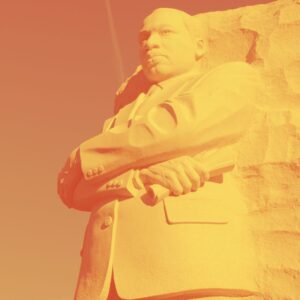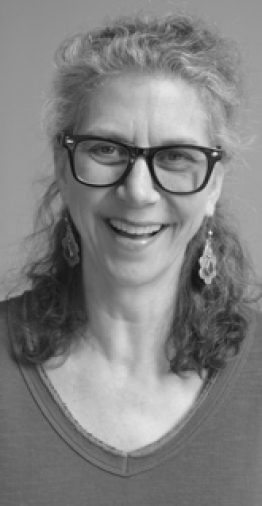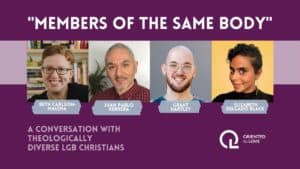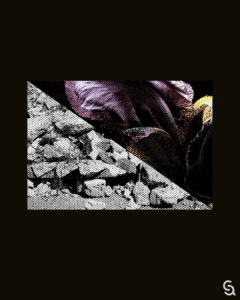“The good neighbor looks beyond the external accidents and discerns those inner qualities that make all [people] human and, therefore, [siblings].”
– Dr. Martin Luther King Jr.
The last 12 years of facilitating dialogue across difference through CSA’s Oriented to Love program have taught me many things. One of my key learnings is to “complicate the narrative.” Nothing, absolutely nothing, is as simple and straightforward as it may appear at first glance. The “external accidents,” as Dr. Martin Luther King, Jr. refers to them, distract us from seeing the real person in front of us. Maybe their baseball cap expresses a view that conflicts with our values. Maybe their accent is unfamiliar to us. Maybe they send any of a thousand other external signals that troubles our sense of safety or reduces our willingness to connect with them. In these cases, we often instinctively decide things about that person that we have no business deciding.
nothing, is as simple and straightforward as it may appear at first glance. The “external accidents,” as Dr. Martin Luther King, Jr. refers to them, distract us from seeing the real person in front of us. Maybe their baseball cap expresses a view that conflicts with our values. Maybe their accent is unfamiliar to us. Maybe they send any of a thousand other external signals that troubles our sense of safety or reduces our willingness to connect with them. In these cases, we often instinctively decide things about that person that we have no business deciding.
If we are to see others as our siblings, we need to learn to override our initial gut reactions. That means looking deeper. (Caveat: it doesn’t mean putting ourselves in danger, but even in those cases, we can usually look deeper from a distance.)
“The good neighbor looks beyond the external accidents and discerns those inner qualities that make all [people] human and, therefore, [siblings].”
– Dr. Martin Luther King Jr.
In Bono’s recent memoir, Surrender, he recounts Harry Belafonte sharing his experience in the early days of the Civil Rights movement. President Kennedy had appointed his younger brother Robert to the position of U.S. Attorney General. But the staff of the Southern Christian Leadership Conference were resistant to working with him: Robert Kennedy, Jr. had initially shown himself to be tone deaf when it came to race and failed to inspire the trust of those whose (Black) lives were daily on the line.
Dr. Martin Luther King, Jr. was furious with his colleagues. “Does anyone here have anything positive to say about our new attorney general?” he asked. When they responded with a resounding “no,” King commanded them to go out “into the world to find one positive thing to say about Bobby Kennedy, because that one positive thing will be the door through which our movement will have to pass.”
The rest, as they say, is history. Robert Kennedy had a steep learning curve, to be sure, but it’s doubtful he would have embarked on that curve had King not insisted on looking for and recognizing “those inner qualities” that made Kennedy his brother. His ability to discern the imago Dei in Kennedy is what allowed Kennedy to become the man he became.
What a powerful reminder to us all.

Kristyn Komarnicki is the director of dialogue and convening for Christians for Social Action.


